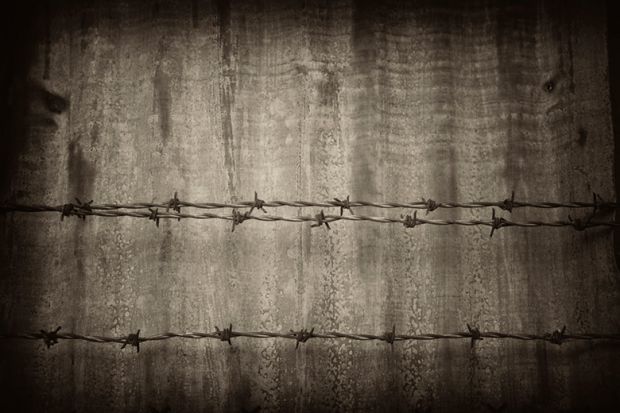Among the technologies of domination that British imperial officers used to control conquered or colonised peoples, the concentration camp holds a vexed place. Although such camps are now irrevocably associated with Nazi forced labour sites and industrial killing grounds, it was in fact the British who perfected the concept of confinement spaces for large numbers of detainees and named them “concentration camps”. Those of the Boer War were more or less contemporary with the reconcentrados of the Spanish-American War in Cuba and those of the US colonisation of the Philippines, and were used to gather civilians from villages to create free-fire zones, hold hostages and facilitate war-fighting.
What Aidan Forth does in this absorbing book is to show that camps were not deployed solely in Britain’s colonial war in South Africa, but in the entirety of its empire, and used in ostensible peacetime to “discipline unruly populations”. He traces the origins of these carceral spaces in the far reaches of empire to the regimes of confinement devised in Britain to deal with vagabonds, workers and criminals. Among the institutions that inspired subsequent practices of confinement in concentration camps, Forth counts “prisons, workhouses, factories and hospitals”.
Particularly fascinating is his account of the concentration camps used in times of famine and plague to segregate the famished and ailing. Those suffering from hunger and illness were often forced into these camps and subjected to military-like discipline. Camp inmates endured surveillance, roll calls and regimes of hygiene and nutrition devised by experts who did not always know what worked best and who used the inmates as experimental subjects. In the metropole, forced hospitalisation – which very often terrorised the poor – had been supplemented with public sanitation measures such as sewers. In the colonies, detention in camps was used punitively and was very rarely, if ever, accompanied by public hygiene infrastructures.
Perhaps unsurprisingly, the famine and plague camps and later the war camps were structured by race, caste and class. In the camps of disease and famine, the poor and the lower castes had to work and received minimal support. During the Boer War, the camps concentrating blacks were far inferior to and had much higher mortality rates than the camps for white Boers.
Forth’s account is a welcome corrective to those who see the empire’s sanitation and hunger relief measures as humanitarian acts. The camps and quarantine measures established by the British were as much about controlling populations as countering hunger or contagion. Extensively researched and drawing on a vast range of imperial archives in Europe, India and South Africa, government reports and periodicals, Barbed-Wire Imperialism also engages a huge number of secondary sources. Its only minor shortcoming is a stylistic tic whereby Forth puts a word or phrase inside double quotes in almost every sentence of the substantive chapters, even when the quoted phrases have passed into common usage. This results in pages cluttered with a blizzard of quotation marks that, after a while, disrupt the pleasure of reading. Ultimately, however, this erudite book is a brilliant contribution to our understanding of imperial modalities of domination and discipline through ostensibly humanitarian means.
Laleh Khalili is professor of Middle East politics at Soas, University of London.
Barbed-Wire Imperialism: Britain’s Empire of Camps, 1876-1903
By Aidan Forth
University of California Press, 368pp, £27.95
ISBN 9780520293977
Published 24 November 2017
POSTSCRIPT:
Print headline: Sites of suffering and segregation
Register to continue
Why register?
- Registration is free and only takes a moment
- Once registered, you can read 3 articles a month
- Sign up for our newsletter
Subscribe
Or subscribe for unlimited access to:
- Unlimited access to news, views, insights & reviews
- Digital editions
- Digital access to THE’s university and college rankings analysis
Already registered or a current subscriber?





